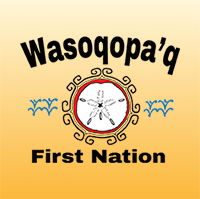News
Livelihood Community Engagement Meetings (Updated)
- Published: September 02 2020 08:58
Updated!!! New Date for Gold River. Please take note of the changes outlined in RED
Moderate Livelihood: Wasoqopa’q First Nation Perspectives
Session purpose:
To value the insights of Wasoqopa’q First Nation community members in the creation of an interim management plan for a livelihood fishery. This interim plan will be further developed by Chief and Council and brought again to the community for final input and approval.
Dates, Times and Locations:
Doubletree Hotel in Dartmouth - August 25th, 2020 (completed)
Gold River Community Center - September 8th, 2020 @ 6:30 pm (new date)
Liverpool Best Western - August 31st, 2020 (completed) (attendance via Zoom will be available)
Shelburne Shelburne Fire Hall - September 2nd, 2020
Yarmouth Rose Purdy Community Center - September 3rd, 2020 (attendance via Zoom will be available)
All meetings will begin at 6:30 pm
Meeting set up and COVID requirements:
- Please register in advance.
- Do not attend this meeting if you are feeling sick of have health concerns. A virtual option will be available instead.
- We have organized the meeting to ensure a distance of 6 feet among participants/family groups.
- Please bring your own mask. We will also have extras on site.
- Sanitizer will also be available
How To Register:
Please contact Curtis Falls by phone or email
Email:
Phone: 902 742-7214
Cell: 902 740-2573
Current Meeting Agenda:
- Opening prayer
- Welcome, purpose, agenda and, introductions (10 minutes)
- Brief presentation and Q/A: Purpose and overview of moderate livelihood (20 mins)
- Participant discussion and sharing back in 5 focus areas (70 minutes)
- The Marshall decision provides a legally recognized, Constitutionally affirmed place for Mi’kmaq in the fishery.
- Moderate livelihood: The Marshall Decision defines moderate livelihood as “…a right to trade for necessaries” (1:58), which includes basics such as food, clothing and housing, supplemented by a few amenities, but not the accumulation of wealth (1:59)
- What does the term moderate livelihood mean to you and your family?
- What’s the maximum amount of money a band member household should be allowed to earn from a moderate livelihood harvest each year?
- Species and areas: The term ‘the fishery’ includes many species. If you were able to enter the livelihood fishery, what would you choose to fish and in what area?
- Access: The fishery is highly regulated and structured, with clear zones and a set number of licenses. What are your thoughts on how Wasoqopa’q First Nation, and the Mi’kmaq of Nova Scotia, should consider access to the fishery?
- Safety: Preparing for the fishery: What training would you need to enter the livelihood fishery?
- Managing the fishery:
- Who manages this fishery? How do we fund the management of it?
- Netukulimk. How do we address conservation? What happens if people don’t follow the rules?
- What other rules and regulations should be followed?
- Moderate livelihood: The Marshall Decision defines moderate livelihood as “…a right to trade for necessaries” (1:58), which includes basics such as food, clothing and housing, supplemented by a few amenities, but not the accumulation of wealth (1:59)
- Summary of responses and overview of next steps (10 minutes)
- The Marshall decision provides a legally recognized, Constitutionally affirmed place for Mi’kmaq in the fishery.
- Feedback sheet (5 minutes)
- Closing prayer

